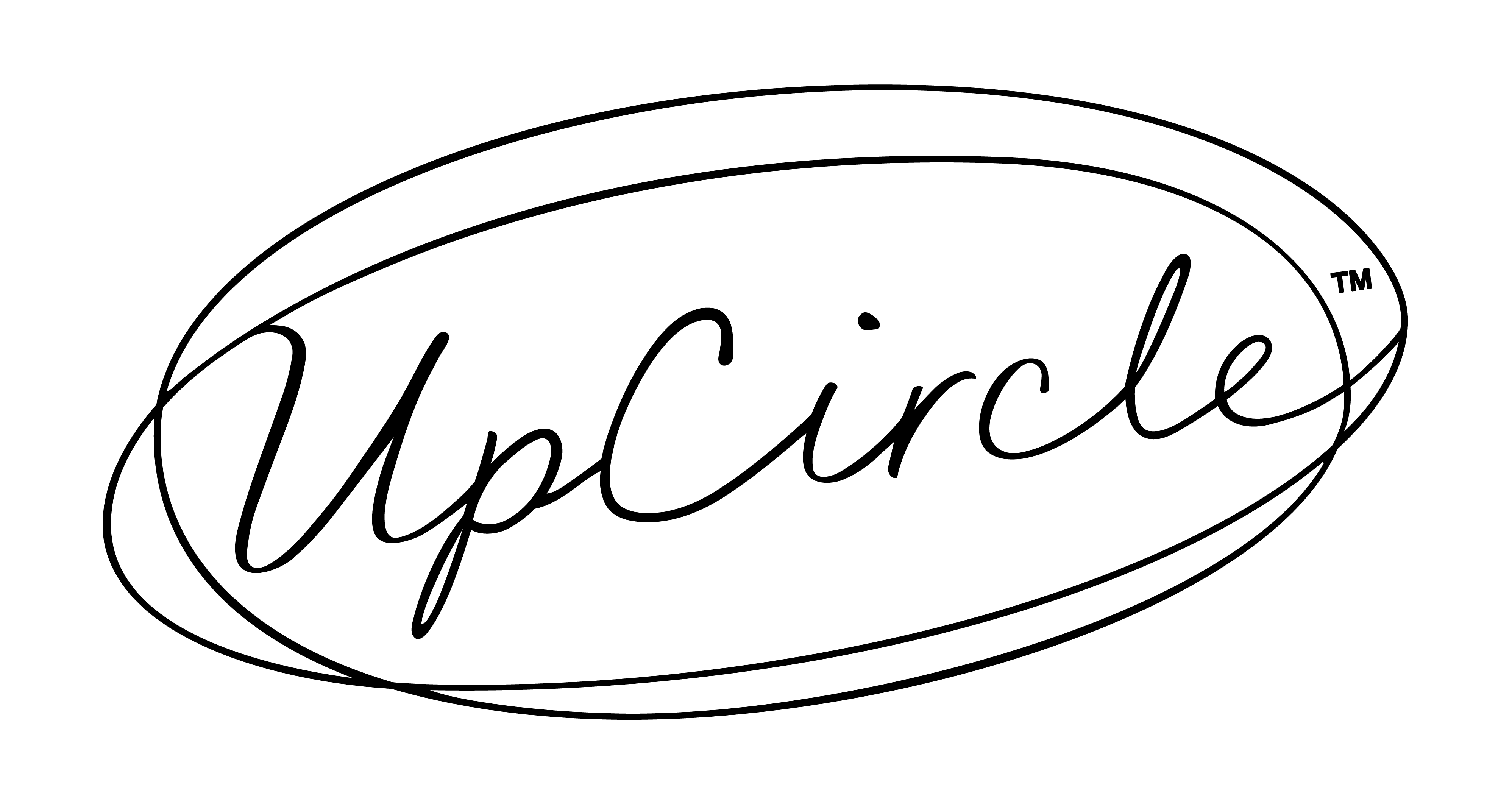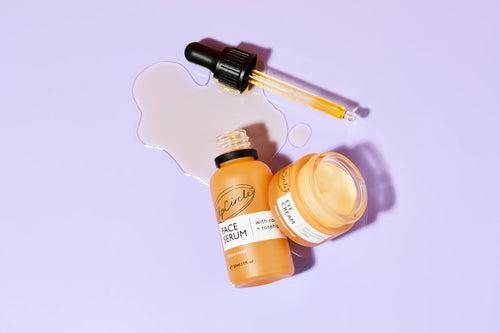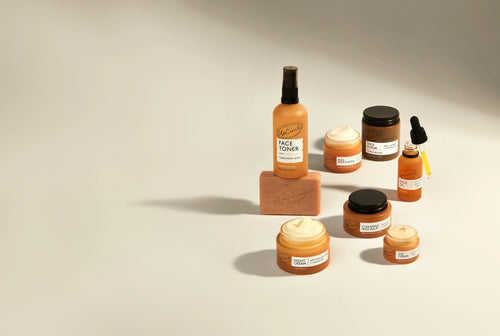Bakuchiol is one of the latest buzz ingredients on the natural skincare scene. It’s definitely trendy, and as such bakuchiol skincare is highly sought after by many when they are choosing skincare that helps to fight against the signs of ageing.
Bakuchiol is a plant-based oil and is therefore both vegan and natural. These are of course great accolades, but we do need to be a little careful. Just because something is vegan and natural, doesn’t mean it’s automatically great for you or for the environment. It’s important that we weigh up the pros and cons of each ingredient so that we choose those which best fit our values overall, and find alternatives if they don’t.
The reason bakuchiol is getting such high praise is its use as an “anti-ageing” ingredient. It’s used for the same reasons that retinol and pro-retinol are used. That’s why it’s actually important to consider these two ingredients alongside each other, and explain why we’ve chosen to use pro-retinol in our skincare.
What is bakuchiol?
Bakuchiol is an oil which comes from a plant called babchi (Psoralea corylifolia) which is native to India. The oil is found in the leaves and seeds. It’s long been used in Ayurvedic traditional healthcare and ancient Chinese medicine to help tackle the signs of ageing. Being plant-based, it is of course vegan.
What does bakuchiol do?
Bakuchiol is a very effective antioxidant, mopping up free radicals which cause the visible signs of ageing. It’s very soothing to the skin and protects the skin from environmental stressors. Bakuchiol can also reduce the appearance of fine lines and other visible signs of ageing, such as wrinkles.
So it works in both a preventative and a treatment kind of way. As such, it is gaining a reputation for being a vegan and natural skincare ingredient that helps fight against the signs of ageing. Science is starting to really back up these attributes of bakuchiol.
Understandably, bakuchiol, at face value, may seem like an excellent alternative to retinoids, such as pro-retinol and retinol itself. This is particularly gaining traction because some people experience irritation when they start using retinol, whereas it would appear bakuchiol is kinder on sensitive skin.
Bakuchiol has been given the title ‘the natural alternative to retinol’. Some even say that it brings all of the benefits of retinol without any of the downsides. However, that’s a little short-sighted and doesn’t actually show the full picture.
To explain, we need to understand a little more about retinol.
What are retinoids?
Retinoids are derivatives of vitamin A that have long been favored in skincare. This is because they protect the skin from, and combat the signs of, ageing. Additionally, retinoids are popular for combatting acne.
There are lots of different types of retinoid. Some are more intense than others, and some, like pro-retinol, are much gentler while delivering the same benefits.
Pro-retinol is a fat-soluble compound which comes from retinol. It’s worth saying that retinol and pro-retinol are often synthetic, but they are safe, effective and sustainable. Pro-retinol is also the most common form of vitamin A that’s found in human skin. It too is used in skincare to help minimize ageing and also to reduce the signs of it.
Pro-retinol has the edge on retinol for many reasons. We use pro-retinol in our products because it is sustainable and meets our values. On top of this, it is also milder, making it an excellent “anti-ageing” ingredient for all skin types, so it doesn’t tend to irritate the skin. Pro-retinol is stable, so it won’t biodegrade in sunlight.
A slight downside is that it can take a while for the benefits of pro-retinol to become visible, so many give up too soon. Pro-retinol needs to go through several conversions before it becomes retinoic acid, which is its active form. That means that it can take a couple of months before you can actually see the benefit – you need to stick with it! However, it’s worth the wait because pro-retinol helps to address age-related skin concerns, and helps to protect the skin against sunlight damage.
Bakuchiol vs retinol
Bakuchiol is often thought of as a straight-switch alternative for retinoids. That’s because you still get the “anti-ageing” benefits, without any of the dryness or irritation that retinol is known for. Bear in mind that most people are comparing bakuchiol with retinol in this regard, rather than pro-retinol. Pro-retinol brings these benefits too without the dryness and irritation.
Indeed, if you pair bakuchiol with retinol it actually helps in two ways: to soothe the irritation and to stabilise it.
When you look at the science and put bakuchiol and retinol head to head, you get very similar results. A 2018 study showed that both retinol and bakuchiol significantly reduce hyperpigmentation and wrinkle surface area. It’s important to know, and not often quoted when people are discussing this study, the participants using bakuchiol cream were using it twice daily, whereas those using retinol cream were only using it once a day (at the same strength). It’s actually arguable, therefore, that it took twice as much bakuchiol to be as effective as retinol in the same time frame.
It’s also important to point out that this study showed that the anti-ageing benefits of bakuchiol came without the stinging and irritation that the retinol users reported. However, bear in mind that this study was looking at retinol not pro-retinol, which is much milder and much less irritating.
These study results, combined with the fact that bakuchiol is ‘all-natural’ and vegan, mean that many brands are swapping out their retinol skincare ingredients for bakuchiol. This is usually with good intentions, but without much further thought.
However, we dug deeper into bakuchiol and discovered that we weren’t happy to do that.
The problems with bakuchiol
Yes, bakuchiol is natural and vegan. But the pro-retinol we use (and indeed the vast majority of retinoids used in skincare) are also vegan.
Simply being natural and vegan doesn’t make bakuchiol sustainable or a kind skincare ingredient to the planet. And that’s where our biggest problem with bakuchiol is.
Bakuchiol is actually an endangered plant, named as being at risk of extinction as far back as 2017. Worryingly, over the last few years its populations have declined rapidly. It’s not being commercially cultivated, so is simply harvested from the wild, and that’s proving very problematic. 95% of the bakuchiol used is coming from wild sources. It’s actually a very difficult plant to cultivate, and needs a lot of hands-on help and using it has been described as “shaky, unsustainable and exploitative.”
We have to be really careful when sourcing natural ingredients so that we understand the environmental impact. For us, bakuchiol isn’t sustainable and as such, we have actively chosen to use pro-retinol.
You can be sure that all the products we sell are vegan, cruelty-free and sustainable. Shop your organic skincare at UpCircle to be sure you’re loving the planet as well as your skin.







